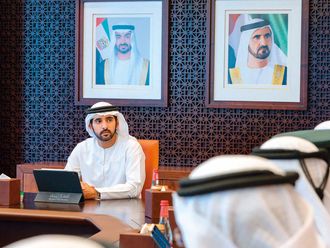Dubai: The UAE is the first Arab country to take legal measures to include synthetic cannabinoids in its drug law, a step that will reinforce the law enforcement response to the “increasing smuggling of synthetic cannabinoids into the country”, the Vienna-based International Narcotics Control Board (INCB) has said.
Releasing its annual report 2013 in London, the INCB said: “The UAE has recently placed synthetic cannabinoids, such as Spice and K2, together with other synthetic cannabinoids, in table I of banned narcotics drugs and psychotropic substances of its Federal Law No. 14 of 1995.”
It quoted UAE customs authorities as saying 126 smuggling attempts involving a total of 23.5kg of synthetic cannabinoids were caught in the first eight months of 2012. “All consignments had arrived in parcels. It is believed that the drug was destined for both local markets and other destinations.”
The report has also quoted the World Customs Organisation as saying the main destination of the 3,881 kg of Captagon tablets seized in the Middle East in 2012, was Saudi Arabia. Almost 83 per cent of all seizures in the region were effected in Saudi Arabia, followed by Jordan and the UAE, it said, adding the growing abuse of pharmaceuticals containing psychotropic substances like benzodiazepines is a serious concern in the region.
New substances
The report said new psychotropic substances were reported by some countries in the Middle East such as Bahrain, Jordan, Oman, Saudi Arabia and the UAE.
The report noted that only one in six drug users worldwide – some 4.5 million people – receives treatment he or she needs, at a global cost of about $35 billion (Dh128.5 billion) per year.












